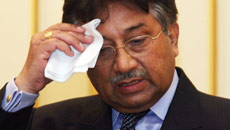As India pulls out all stops to roll out a grand welcome to President Xi Jinping in Tamil Nadu's Mamallapuram, an ancient seaside temple town, China has said the two countries pose no threat to each other and greater cooperation between the two Asian giants would inject positive energy in ensuring peace and stability in the region and beyond.
In an exclusive interview, Chinese Ambassador Sun Weidong said a "new set of consensus" including "guiding principles" on the development direction of bilateral ties between the two nations are expected to emerge from two-day informal summit beginning Friday.
The envoy said as the largest developing countries and emerging economies of the world, China and India have a responsibility to inject positive energy into a "complicated world".
"We believe that the Summit will take bilateral relations to a higher level and have a major and positive impact on regional and world peace, stability and development," Sun Weidong said.
Xi Jinping will arrive in Chennai on Friday on a nearly 24-hour visit to hold talks with PM Modi in an informal setting amid growing unease in ties between the two countries over Kashmir, particularly after Pakistan Prime Minister Imran Khan raised the issue during talks with the Chinese leader in Beijing on Wednesday.
"The two countries pose no threat but offer development opportunities to each other. The cooperation between China and India will not only contribute to each other's development, but also advance the process of world multi-polarisation and economic globalisation and safeguard the common interests of developing countries," Sun Weidong said.
The Chinese envoy said the two leaders will also have in-depth discussions on the international situation and overall, long-term and strategic issues concerning the development of ties between China and India.
"A new set of consensus is expected, including a shared vision for transformation of the international system, the common responsibility and role of China and India in regional affairs, and guiding principles on the development direction of bilateral relations and cooperation in various fields," Sun Weidong said.
"We believe that the Summit will take bilateral relations to a higher level and have a major and positive impact on regional and world peace, stability and development," he said.
The envoy said deeper cooperation between India and China will benefit the developing countries as well as to deal with global challenges like unilateralism and protectionism.
"Unilateralism, protectionism and trade bullying are on the rise. The world is moving toward multi-polarity and economic globalisation despite twists and turns. The common threats and challenges facing human society have risen. As the largest developing countries and emerging economies of the world, China and India have a responsibility to inject positive energy into a complicated world," he said.
Ties between India and China came under renewed strain over Kashmir after a joint statement issued after talks between Xi and Khan on Wednesday said China is paying "close attention" to the situation in the Valley.
It also said that Kashmir issue is a dispute left from history, and should be properly and peacefully resolved based on the UN Charter.
After Xi Jinping-Imran Khan meeting, External Affairs Ministry Spokesperson Raveesh Kumar said India's consistent and clear position has been that Jammu and Kashmir is an integral part of the country and China is well aware of New Delhi's position.
Talking about overall China-India ties, the Chinese envoy particularly talked about cooperation in investment and energy sector, saying new progress has been made in the area.
